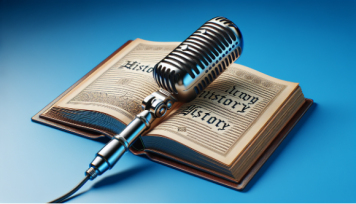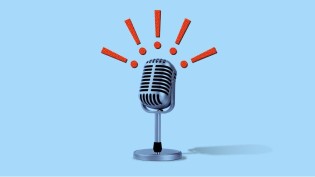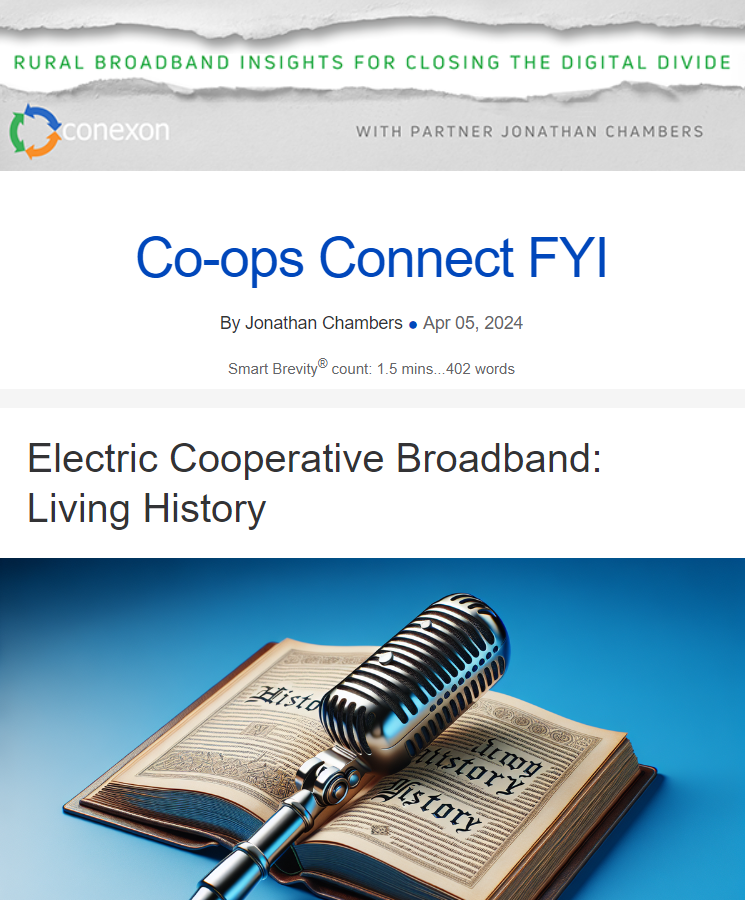Electric Cooperative Broadband: Living History
April 5, 2024

Recently, I had occasion to listen to my younger son conduct an interview for an oral history project at school. His high school’s American Century Project has accumulated the largest volume of pre-collegiate oral histories in the country.
These first-hand accounts are a record for future generations, providing historians and the public with the observations, reflections, and emotions from living sources who are participants in, and witnesses to, history.
Why it matters:
In my post last week, I mentioned the work of a half-dozen electric co-op CEOs, who were among the pioneers bringing broadband to their communities.
- These and other men and women are, as we are at Conexon, living history.
Today, historians, economists, urban planners, and policymakers regularly study and seek to learn from the lessons of the history of rural electrification in this country in the 1930s and 1940s.
- When the White House announced the BEAD program, it pointed to the model of rural electrification. (“Roosevelt’s Rural Electrification Act brought electricity to nearly every home and farm in America . . .”).
The big picture:
Many years from now, the same will be true for broadband.
It is perhaps an echo of the history from decades ago.
But it will be regarded as an important part of the history of rural America in decades to come.
The Project Ahead

What’s next:
I thought it would be both interesting and illuminating to capture the oral history of this co-op movement.
- Conexon has already recorded a number of interviews, which are presented in podcast format on our website here.
Today, I have in mind something different.
- I intend to create a living history in short-form email by interviewing some of the thousands of co-op personnel and board members that I have met over the past decade.
The bottom line:
I have been writing about broadband for decades, and about rural broadband for the past 12 years.
Every few weeks or so, I intend to record and share some of what I’ve heard from many of you, to:
- Turn those recordings into writing for history, and
- Help define an under-recorded part of the American experience.
I hope many of you will be open to this experiment should I call upon you.
